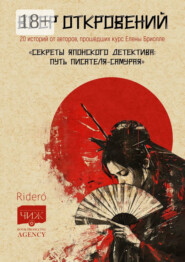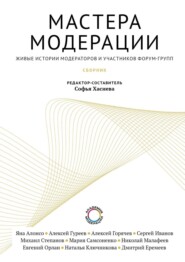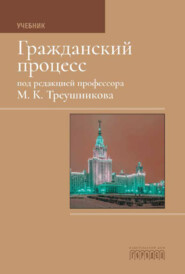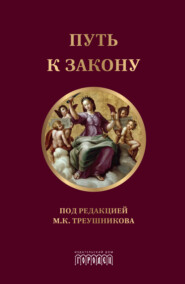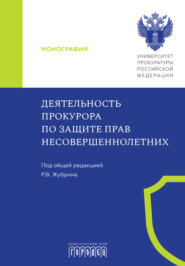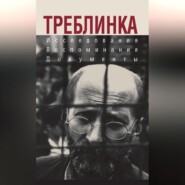По всем вопросам обращайтесь на: info@litportal.ru
(©) 2003-2024.
✖
International Short Stories: French
Настройки чтения
Размер шрифта
Высота строк
Поля
"Wife," said he, "is this my child?"
Giuseppa's cheeks turned a brick-red.
"What are you saying, Mateo? Do you know to whom you speak?"
"Very well, this child is the first of his race to commit treason."
Fortunato's sobs and gasps redoubled as Falcone kept his lynx-eyes upon him. Then he struck the earth with his gun-stock, shouldered the weapon, and turned in the direction of the mâquis, calling to Fortunato to follow. The boy obeyed. Giuseppa hastened after Mateo and seized his arm.
"He is your son," said she with a trembling voice, fastening her black eyes on those of her husband to read what was going on in his heart.
"Leave me alone," said Mateo, "I am his father."
Giuseppa embraced her son, and bursting into tears entered the house. She threw herself on her knees before an image of the Virgin and prayed ardently. In the meanwhile Falcone walked some two hundred paces along the path and only stopped when he reached a little ravine which he descended. He tried the earth with the butt-end of his carbine, and found it soft and easy to dig. The place seemed to be convenient for his design.
"Fortunato, go close to that big rock there."
The child did as he was commanded, then he kneeled.
"Say your prayers."
"Oh, father, father, do not kill me!"
"Say your prayers!" repeated Mateo in a terrible voice.
The boy, stammering and sobbing, recited the Pater and the Credo. At the end of each prayer the father loudly answered, "Amen!"
"Are those all the prayers you know?"
"Oh! father, I know the Ave Maria and the litany that my aunt taught me."
"It is very long, but no matter."
The child finished the litany in a scarcely audible tone.
"Are you finished?"
"Oh! my father, have mercy! Pardon me! I will never do so again. I will beg my cousin, the Caporal, to pardon Gianetto."
He was still speaking. Mateo raised his gun, and, taking aim, said:
"May God pardon you!"
The boy made a desperate effort to rise and grasp his father's knees, but there was not time. Mateo fired and Fortunato fell dead.
Without casting a glance on the body, Mateo returned to the house for a spade with which to bury his son. He had gone but a few steps when he met Giuseppa, who, alarmed by the shot, was hastening hither.
"What have you done?" cried she.
"Justice."
"Where is he?"
"In the ravine. I am going to bury him. He died a Christian. I shall have a mass said for him. Have my son-in-law, Tiodoro Bianchi, sent for to come and live with us."
THE MIRROR
BY CATULLE MENDES
There was once a kingdom where mirrors were unknown. They had all been broken and reduced to fragments by order of the queen, and if the tiniest bit of looking-glass had been found in any house, she would not have hesitated to put all the inmates to death with the most frightful tortures.
Now for the secret of this extraordinary caprice. The queen was dreadfully ugly, and she did not wish to be exposed to the risk of meeting her own image; and, knowing herself to be hideous, it was a consolation to know that other women at least could not see that they were pretty.
You may imagine that the young girls of the country were not at all satisfied. What was the use of being beautiful if you could not admire yourself?
They might have used the brooks and lakes for mirrors; but the queen had foreseen that, and had hidden all of them under closely joined flagstones. Water was drawn from wells so deep that it was impossible to see the liquid surface, and shallow basins must be used instead of buckets, because in the latter there might be reflections.
Such a dismal state of affairs, especially for the pretty coquettes, who were no more rare in this country than in others.
The queen had no compassion, being well content that her subjects should suffer as much annoyance from the lack of a mirror as she felt at the sight of one.
However, in a suburb of the city there lived a young girl called Jacinta, who was a little better off than the rest, thanks to her sweetheart, Valentin. For if someone thinks you are beautiful, and loses no chance to tell you so, he is almost as good as a mirror.
"Tell me the truth," she would say; "what is the color of my eyes?"
"They are like dewy forget-me-nots."
"And my skin is not quite black?"
"You know that your forehead is whiter than freshly fallen snow, and your cheeks are like blush roses."
"How about my lips?"
"Cherries are pale beside them."
"And my teeth, if you please?"
"Grains of rice are not as white."
"But my ears, should I be ashamed of them?"
"Yes, if you would be ashamed of two little pink shells among your pretty curls."
And so on endlessly; she delighted, he still more charmed, for his words came from the depth of his heart and she had the pleasure of hearing herself praised, he the delight of seeing her. So their love grew more deep and tender every hour, and the day that he asked her to marry him she blushed certainly, but it was not with anger. But, unluckily, the news of their happiness reached the wicked queen, whose only pleasure was to torment others, and Jacinta more than anyone else, on account of her beauty.
A little while before the marriage Jacinta was walking in the orchard one evening, when an old crone approached, asking for alms, but suddenly jumped back with a shriek as if she had stepped on a toad, crying: "Heavens, what do I see?"
"What is the matter, my good woman? What is it you see? Tell me."
Giuseppa's cheeks turned a brick-red.
"What are you saying, Mateo? Do you know to whom you speak?"
"Very well, this child is the first of his race to commit treason."
Fortunato's sobs and gasps redoubled as Falcone kept his lynx-eyes upon him. Then he struck the earth with his gun-stock, shouldered the weapon, and turned in the direction of the mâquis, calling to Fortunato to follow. The boy obeyed. Giuseppa hastened after Mateo and seized his arm.
"He is your son," said she with a trembling voice, fastening her black eyes on those of her husband to read what was going on in his heart.
"Leave me alone," said Mateo, "I am his father."
Giuseppa embraced her son, and bursting into tears entered the house. She threw herself on her knees before an image of the Virgin and prayed ardently. In the meanwhile Falcone walked some two hundred paces along the path and only stopped when he reached a little ravine which he descended. He tried the earth with the butt-end of his carbine, and found it soft and easy to dig. The place seemed to be convenient for his design.
"Fortunato, go close to that big rock there."
The child did as he was commanded, then he kneeled.
"Say your prayers."
"Oh, father, father, do not kill me!"
"Say your prayers!" repeated Mateo in a terrible voice.
The boy, stammering and sobbing, recited the Pater and the Credo. At the end of each prayer the father loudly answered, "Amen!"
"Are those all the prayers you know?"
"Oh! father, I know the Ave Maria and the litany that my aunt taught me."
"It is very long, but no matter."
The child finished the litany in a scarcely audible tone.
"Are you finished?"
"Oh! my father, have mercy! Pardon me! I will never do so again. I will beg my cousin, the Caporal, to pardon Gianetto."
He was still speaking. Mateo raised his gun, and, taking aim, said:
"May God pardon you!"
The boy made a desperate effort to rise and grasp his father's knees, but there was not time. Mateo fired and Fortunato fell dead.
Without casting a glance on the body, Mateo returned to the house for a spade with which to bury his son. He had gone but a few steps when he met Giuseppa, who, alarmed by the shot, was hastening hither.
"What have you done?" cried she.
"Justice."
"Where is he?"
"In the ravine. I am going to bury him. He died a Christian. I shall have a mass said for him. Have my son-in-law, Tiodoro Bianchi, sent for to come and live with us."
THE MIRROR
BY CATULLE MENDES
There was once a kingdom where mirrors were unknown. They had all been broken and reduced to fragments by order of the queen, and if the tiniest bit of looking-glass had been found in any house, she would not have hesitated to put all the inmates to death with the most frightful tortures.
Now for the secret of this extraordinary caprice. The queen was dreadfully ugly, and she did not wish to be exposed to the risk of meeting her own image; and, knowing herself to be hideous, it was a consolation to know that other women at least could not see that they were pretty.
You may imagine that the young girls of the country were not at all satisfied. What was the use of being beautiful if you could not admire yourself?
They might have used the brooks and lakes for mirrors; but the queen had foreseen that, and had hidden all of them under closely joined flagstones. Water was drawn from wells so deep that it was impossible to see the liquid surface, and shallow basins must be used instead of buckets, because in the latter there might be reflections.
Such a dismal state of affairs, especially for the pretty coquettes, who were no more rare in this country than in others.
The queen had no compassion, being well content that her subjects should suffer as much annoyance from the lack of a mirror as she felt at the sight of one.
However, in a suburb of the city there lived a young girl called Jacinta, who was a little better off than the rest, thanks to her sweetheart, Valentin. For if someone thinks you are beautiful, and loses no chance to tell you so, he is almost as good as a mirror.
"Tell me the truth," she would say; "what is the color of my eyes?"
"They are like dewy forget-me-nots."
"And my skin is not quite black?"
"You know that your forehead is whiter than freshly fallen snow, and your cheeks are like blush roses."
"How about my lips?"
"Cherries are pale beside them."
"And my teeth, if you please?"
"Grains of rice are not as white."
"But my ears, should I be ashamed of them?"
"Yes, if you would be ashamed of two little pink shells among your pretty curls."
And so on endlessly; she delighted, he still more charmed, for his words came from the depth of his heart and she had the pleasure of hearing herself praised, he the delight of seeing her. So their love grew more deep and tender every hour, and the day that he asked her to marry him she blushed certainly, but it was not with anger. But, unluckily, the news of their happiness reached the wicked queen, whose only pleasure was to torment others, and Jacinta more than anyone else, on account of her beauty.
A little while before the marriage Jacinta was walking in the orchard one evening, when an old crone approached, asking for alms, but suddenly jumped back with a shriek as if she had stepped on a toad, crying: "Heavens, what do I see?"
"What is the matter, my good woman? What is it you see? Tell me."






